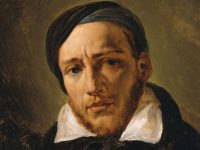
For purely economic reasons, blue light has become the black sheep of visible light. In recent years, several businesses have sprung up around this endlessly demonised colour. They promise to free us from its terrible dangers: damage to the retina and macula, sleep disorders, skin ageing, dry eyes, premature cataracts, increased sugar cravings, visual fatigue… A textbook example of marketing based on invented needs: invent a danger, convince people that it exists, explain why they should be concerned, and then sell them your solution.
The range of products offered by companies to protect us from blue light includes filters for glasses, mobile phones, tablets and computer screens; apps to limit blue light; and even sunscreens and anti-ageing creams. Scaremongering is the essential driving force to boost sales of these products, even if it is through half-truths based on scientific studies or outright lies. Here is a real example of an advertisement circulated on the Internet to spread fear:
“Juan lost an eye to a retinal detachment..”
“That’s crazy! All of a sudden?”
“Five minutes before he could see fine, he had no warning… And 10% of those who suffer from it don’t recover.”
“But he’s so young!”
“Forty years old. Cases have increased by 1,000%.”
“Wow, thank goodness we use [brand of blue light filter]!”
Misleading messages like these have led health bodies such as the Spanish Ophthalmological Society to repeatedly explain to the media the reality of the alleged dangers of blue light and why blue light filtering products offer no health benefits. The scientific evidence shows that they do not prevent eye disease, nor do they reduce the eye discomfort caused by prolonged use of screen-based devices. There is also no evidence that glasses that (partially) block blue light can improve sleep quality, reduce eye fatigue, or maintain macular health.
To date, no animal or human studies have shown that blue light, whether from screens or sunlight, can harm the retina or any other part of the eye, let alone cause blindness. In fact, exposure to blue light from electronic devices is minimal compared to what we receive outside our homes every day. However, for the manufacturers of these items, we are exposed to far too much blue light.
Companies selling products that filter blue light rely on studies that cannot be extrapolated to real life to convince people of their supposed benefits. These studies are carried out on cells in laboratory dishes (in vitro) or on animals in conditions that do not occur in real life (for example, by exposing them to extremely high intensities of blue light).
In addition to misleading consumers (in violation of the Spanish law on advertising and commercial promotion of products with alleged health benefits), these products represent a completely unnecessary expense for consumers. Lenses with blue light filters are significantly more expensive and worsen the visual experience by limiting (but not eliminating) the blue light that the user can see. In any case, none of this matters if health authorities do not take action to punish blue light marketers who use fear and misinformation to sell their products.





